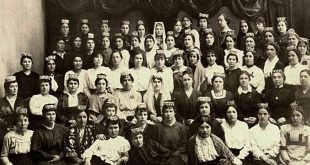This article revisits Sayyid Musa’s engagement with the Lebanese state, and his approach to the Left and its secularist programmes.
Several scholars have studied various aspects of the life and thought of Sayyid Musa al-Sadr (1928-78), the distinguished Iranian Shiʿi cleric who won much popularity in Lebanon during the 1960s and the 1970s. Rarely has Sayyid Musa’s engagement with the state as a legal and juridical apparatus been investigated nor his conflict with the Shiʿi left. My paper considers these two dimensions as part and parcel of the context of the Movement of the Dispossessed (harakat al-mahrumin) and its full implications for Lebanese Shiʿis. My paper revisits Sayyid Musa’s engagement with the Lebanese state, and his approach to the Left and its secularist programmes. It examines the interface of religion and secularism through the formation of the Supreme Islamic Shiʿi Council in 1969, and the launching of the Movement of the Dispossessed in 1974. It also illuminates the challenge which the mahrumin movement posed to the Left in general, and the Communists in particular. During the 1960s and the 1970s, leftist journalists, thinkers, unionists, and artists brought to the public sphere a powerful discourse against the state and capital. They strove through their parties and civil spheres to organize the Lebanese around class issues and secular political demands. The mahrumin movement emerged out of this environment but took on a life of its own. It marked the first public forum for the co-optation of the Shiʿi Left and the entry of the cleric to the centre of political life. It inspired new connections between religion, the public sphere, and the state.
Bibliographic Information
Title: Sayyid Musa al-Sadr, the Lebanese State, and the Left
Author: Rula Jurdi Abisaab
Published in: Journal of Shi’a Islamic Studies, Volume 8, Number 2, Spring 2015, pp. 131-157
Language: English
Length: 26 pages
 Ijtihad Network Being Wise and Faithful Muslim in the Contemporary World
Ijtihad Network Being Wise and Faithful Muslim in the Contemporary World

